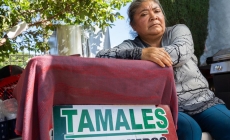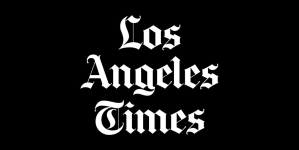-
Dozens Are Killed at Aid Site Near Border, Gaza Health Officials Say - 8 hours ago
-
30 hurt when car slams into crowd in Hollywood - 1 day ago
-
Astronomer CEO Andy Byron Placed on Leave After Video at Coldplay Concert Exposes Alleged Affair - 2 days ago
-
Blood in the Streets and Death in the Air: Residents Survey Damage in Syrian City - July 17, 2025
-
Army vet calls for investigation after being detained for three days in ICE raid - July 17, 2025
-
Tariffs Push Up Prices, and the Supreme Court’s ‘Shadow Docket’ - July 16, 2025
-
ICE arrested her selling tamales at Lowes. Then she suffered a heart attack. ‘I told them: I can’t breathe’ - July 14, 2025
-
The Royal Box: Who’s in Wimbledon’s Most Exclusive Seats? - July 13, 2025
-
David Gergen, Adviser to Presidents and Political Commentator, Dies at 83 - July 12, 2025
-
Federal judge temporarily halts alleged indiscriminate immigration stops - July 12, 2025
First Harvard, now Berkeley: Trump administration probes foreign funds
The Trump administration accused UC Berkeley of failing to disclose millions of dollars in foreign funding on Friday, touting muscular new enforcement of an obscure federal rule amid ongoing efforts to bridle America’s top research institutions.
The University of California flagship is the second top school to come under investigation this month for alleged violations of Section 117 of the Higher Education Act of 1965, which requires disclosure of “foreign source gifts and contracts” worth more than $250,000.
A similar investigation into Harvard was announced last week. On Wednesday, President Trump signed an executive order directing the Department of Education to ramp up enforcement of the rule.
The department “will begin by thoroughly examining UC Berkeley’s apparent failure to fully and accurately disclose significant funding received from foreign sources,” U.S. Secretary of Education Linda McMahon said in a statement.
Dan Mogulof, assistant vice chancellor of the UC Berkeley communications and public affairs office, issued a statement that said the school has already been in contact with federal authorities about the issue.
“Over the course of the last two years, UC Berkeley has been cooperating with federal inquiries regarding [Section] 117 reporting issues, and will continue to do so,” Mogulof said.
The audits are the latest in a barrage of administrative actions against elite universities around the country.
The campaign-season blueprint known as Project 2025 that laid out Trump’s potential agenda highlighted Section 117 as a possible mechanism to claw back federal funding from top schools, including through Pell Grants and Fullbright Scholarships — a move experts say could devastate critical research.
“All of these are really existential threats to the research university as it currently exists,” said Kevin Kinser, a professor of education policy at Penn State University. “A world-class university has to have engagements around the world — that’s what defines world-class.”
The University of California system was already reeling from massive federal funding cuts, student visa cancellations and Justice Department probes into admissions and allegations of antisemitism. Harvard, the world’s richest school, emerged as an unlikely folk hero after it rebuffed the administration’s demands for extensive control of the school.
A wave of Section 117 challenges could further isolate institutions already under assault.
America’s elite universities are already deeply enmeshed with top schools abroad, from engineering partnerships with the Indian Institute of Technology to the Persian Gulf campuses of Georgetown, Texas A&M and NYU.
Proponents say such partnerships are essential to innovation and academic excellence. Critics argue that foreign cash buys influence over American students and wedges open a back door to American intellectual property for foreign governments.
“Protecting American educational, cultural, and national security interests requires transparency regarding foreign funds flowing to American higher education and research institutions,” Wednesday’s executive order reads.
The new UC Berkeley inquiry revives a 2023 House subcommittee investigation into the Tsinghua-Berkeley Shenzhen Institute, a partnership between UC Berkeley’s College of Engineering and China’s Tsinghua University begun in 2016.
The two schools have collaborated extensively on research including clean energy and climate change for decades. Tsinghua has similar formal partnerships with the University of Washington, Indiana University and Cedars-Sinai Medical Center, among others.
According to tax forms from its American nonprofit, Tsinghua gave $2.5 million to the UC Regents to fund the program in 2019 and 2018. It gave $4.5 million to the Regents in 2017.
Times staff writer Jaweed Kaleem contributed to this report.
Source link











